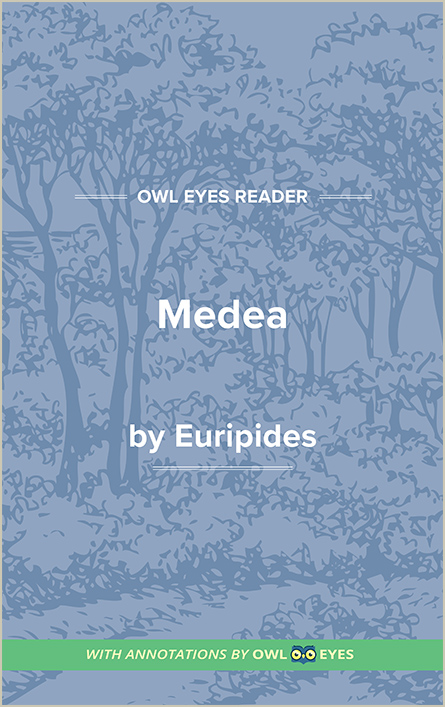Study Guide
Analysis Pages
Euripides Biography
The manuscript tradition of Euripides contains an ancient Life of Euripides, clearly a composite of several sources, including Philochorus, a fourth century b.c.e. Attic historian, and Satyros, a third century Peripatetic biographer, fragments of whose own Life of Euripides exist on papyrus. Unfortunately, however, much of the ancient biographical tradition about Euripides is derived from ancient comedy, especially from that of Aristophanes, whose Thesmophoriazousai (411 b.c.e.; Thesmophoriazusae, 1837) and Batrachoi (405 b.c.e.; The Frogs, 1780) both contain caricatures of Euripides and who is therefore suspect as a historical source.
The problem of source reliability starts with Euripides’ parentage. The comic tradition that Euripides’ father, Mnesarchus (or Mnesarchides), was a shopkeeper and his mother, Clito, a greengrocer, is apparently contradicted by ancient statements that Euripides’ mother belonged to a noble family and that Euripides himself was granted honors worthy of high rank, including those of dancing at Athens in the sacred dance to Delian Apollo and of being a fire bearer in another cult of Apollo. Euripides is said to have been born on the island of Salamis, but he was a member of the Athenian deme of Phlya, where he may have held a local priesthood of Zeus. His date of birth is variously given as either 485 or 480 b.c.e., the later date being based on the persistent ancient tradition that the playwright was born on Salamis on the very day of the battle in which Aeschylus may have fought and after which Sophocles as a youth is said to have danced in the victory celebration. Apparently, Euripides’ ties with Salamis were strong, for he is said to have composed many of his plays in a solitary cave on the island.
The ancient Life of Euripides states that, as a youth, Euripides studied painting and was trained as an athlete because of a misinterpretation of an oracle stating that he would someday win “crowns in contests at Athens.” Although Euripides may, as some sources suggest, have won some early athletic victories at Athens, his real victories were to be won in the dramatic competitions at Athens’ Greater Dionysia.
Euripides is linked intellectually with many of the great thinkers of his day. The ancient Life of Euripides lists among his teachers Anaxagoras, whose doctrines can be seen in Hippolytus, The Trojan Women, and elsewhere; Protagoras, who is said to have read his treatise “On the Gods” in Euripides’ house; the Sophist Prodicus; and even Socrates, who was at least fifteen years Euripides’ junior and whom Aristophanes called a collaborator in Euripides’ dramatic compositions. As a fifth century b.c.e. Athenian, Euripides certainly came in contact with all these men, but none of them is likely to have a formal student-teacher relationship with Euripides. The influence of the tragedian Aeschylus and the poet Timotheus on Euripides’ dramatic development has already been mentioned. The poet may also have had some connections with the historian Thucydides. A memorial inscription dedicated to Euripides is ascribed to Thucydides, although it is sometimes attributed to Timotheus.
The story of Euripides’ two unhappy marriages, first to Melito and then to a Choerile or Choerine, daughter of Mnesilochus, is too clearly entangled in comic tradition to be historical. According to the Life of Euripides, the second wife committed adultery with a certain Cephisophon, who is described both as a house slave and as a literary collaborator with Euripides. The playwright is said to have written his scandalous first Hippolytus in reaction to his wife’s infidelity. Actually, both unhappy marriages and his traditional misogyny may be a comic exaggeration of Euripides’ depiction of evil women in such plays as the first Hippolytus and Medea.
Euripides had three sons: Mnesarchides, a merchant; Mnesilochus, an actor; and Euripides the younger, a tragic poet who produced Iphigenia in Aulis and The Bacchae posthumously for his father.
(The entire page is 1,943 words.)
Owl Eyes subscribers get unlimited access to our expert annotations, analyses, and study guides on your favorite texts. Master the classics for less than $5/month!

